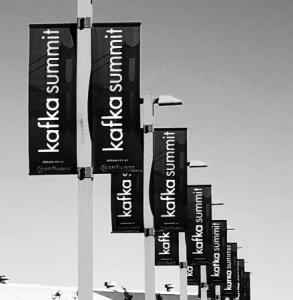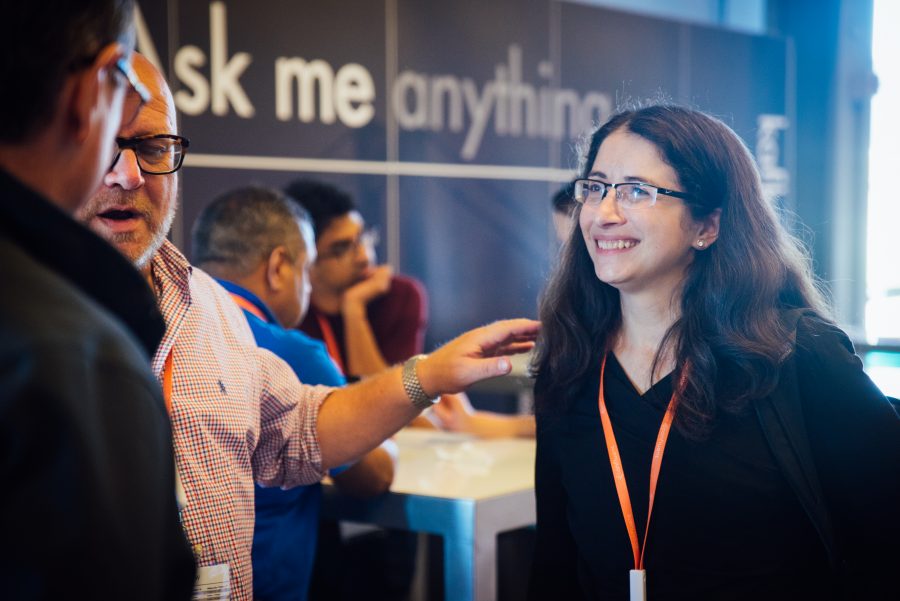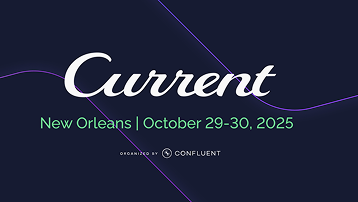It’s Here! Confluent’s 2026 Data + AI Predictions Report | Download Now
Kafka Summit 2019 Call for Papers, Tracks and Office Hours
It might seem a little strange, being the holiday season and still technically 2018, for me to be talking 2019 Kafka Summit events. But as you may already know, the CFPs are open, and we’ve got some details that you might find useful.

First of all, ICYMI, there will be three events next year: our usual fall event in San Francisco, and two in the spring: one in New York, and one in London. That’s a total of three Kafka Summits in one year—a new personal best for the community. I would like to formally invite you (again) to submit your talks to whichever of these two events is appropriate for you:
- Kafka Summit New York is on April 2, 2019. Submit a talk to New York here before December 20, 2018.
- Kafka Summit London is on May 13 and 14, 2019. Submit a talk to London here before December 20, 2018.
Note: The Kafka Summit San Francisco CFP will open later next year.
New tracks
Because we want to make Kafka Summit a place where the most advanced thinking about stream processing takes place, we’ve reconfigured the track definitions a little bit to keep things current. These are the four tracks you’ll find at the London and NYC events:
Core Kafka
Want to dive deep into Kafka’s internals, or just get a refresher on the basics of the platform? The Core Kafka track focuses on the present and future of Kafka as a distributed messaging system. As the platform matures, you have to keep your eye on the leading edge and the fundamentals alike. This track is here to help.
Stream Processing
Talks in this track cover APIs, frameworks, tools and techniques in the Kafka ecosystem used to perform real-time computations over streaming data. If you’re building an event-driven system—whether on KSQL or Kafka Streams or something else—you need the experience shared in this track.
Event-Driven Development
Streaming applications are unlike the systems we have built before, and we’re all learning this new style of development. Event-driven thinking requires deep changes to the request/response paradigm that has informed application architectures for decades, and a new approach to state as well. In this track, practitioners will share about their own experiences and the architectures they have employed to build streaming applications and bring event-driven thinking to the forefront of every developer’s mind.
Use Cases
Stream processing and event-driven development is being applied to use cases across every industry you can imagine. In the Use Cases track, we’ll share stories of actual streaming platform implementations from a variety of verticals. Talks in this track will define the business problems faced by each organization, tell the story of what part streaming played in the solution and reveal the outcomes realized as a result.
Office hours
You may have really important and interesting Kafka knowledge to share, but you might be new at this whole conference business. If this is you, I want you to submit your talk. Everybody gets started some time, and we do have room for newcomers who have knowledge to share.
To help make it easier, we are holding online office hours, where you can ask questions about crafting a strong submission, bounce off ideas, etc. Members of the program committee and our developer relations team will be there to help. To take part, join the #summit-office-hours channel in our Slack community at one of these two times:
- December 11, 2018, at 11:00 a.m. PST
- December 17, 2018, at 2:00 p.m. GMT

New program committee
With over 30 sessions to attend at each summit, every talk is carefully chosen by the collaboration of this outstanding program committee. You’ll recognize some new names here, as well as some faithful contributors who have been working for years now to make the Kafka Summit more and more awesome:
- Becket Qin, Alibaba
- Ben Lorica, O’Reilly Media
- Ben Stopford, Confluent
- Helena Edelson
- Joy Gao, WePay
- Jun Rao, Confluent
- Lena Hall, Microsoft
- Michael Noll, Confluent
- Neha Narkhede, Confluent
- Rajini Sivaram, Confluent
- Sam Newman
- Stéphane Maarek, DataCumulus
- Tim Berglund, Confluent
- Todd Palino, LinkedIn
Now, go mark your calendar with the dates of the summits, and if you want to speak there, make sure you get your paper in before the deadline! I look forward to seeing many of you at these two events.
Ist dieser Blog-Beitrag interessant? Jetzt teilen
Confluent-Blog abonnieren
Context-Driven AI Reigned Supreme at Current New Orleans
Catch up on Current New Orleans—and how executives, architects, developers, and data engineers alike learned about why AI should be powered by event-driven, context-rich data streams.
Current New Orleans: Unlock Real-Time Data Insights
At Current 2025 in New Orleans (Oct 29–30), developers, data engineers, operators, architects & tech execs unlock real-time data + AI insights.

